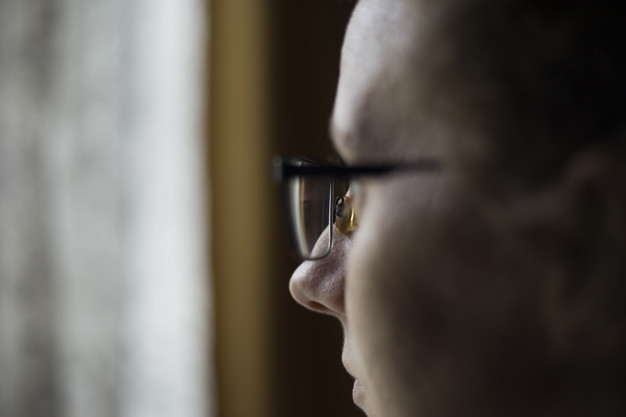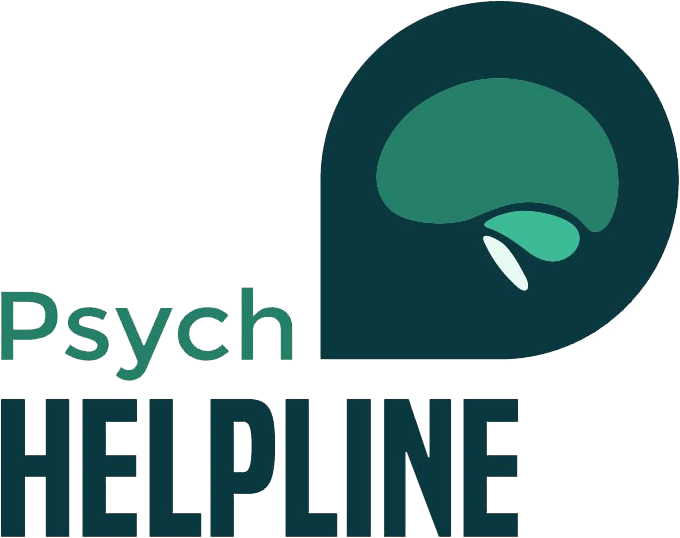Table of Contents

Domestic violence counseling is a game-changer for the 10 million men and women that get affected by it, every year. Domestic violence is much more prevalent than the masses seem to realize. It’s only going to lead to more issues unless its roots and the trauma associated with it get acknowledged. Every case varies in its intensity and the kind of abuse that might be occurring inside the four walls of a house. Yet, the importance of earlier signs and on-time counseling remains similar in the case of every victim.
Essentiality of Counseling For Domestic Abuse Victims & Survivors
- Facing domestic violence can be soul-shaking. It’s a life-changing experience for survivors and often comes as a surprise to most. The trauma and distress resulting from that can be everlasting. PTSD resulting from domestic violence can affect a victim’s upcoming life and some of its important aspects. On top of this list is their ability to trust someone else ever again. After experiencing something so traumatizing done to them by a loved one, they’d probably never want to be with someone else again. So, one of the many reasons why it is necessary to provide domestic violence counseling to such people is to help them move on. For example; children that have struggled with abusive paternal figures generally have trauma associated with that. It’s necessary to wear off the impact of PTSD resulting from domestic violence before they get adopted by another guardian.
- Counseling can also help in shifting the blame from the abused to the abuser. In most cases, survivors feel like they are to be blamed for what happened to them. Only an expert can help them understand that domestic violence was never their fault.
- Actualizing trauma and then facing it is a time taking process. One cannot heal without confronting the past. Counseling sessions with a trusted expert can provide the foreign aid that a domestic violence survivor badly needs to face their demons. Furthermore, domestic violence counseling can also help you realize whether any other mental health issues might have stepped in due to an abusive relationship in your past.
- Mental health counseling also gives a much-needed push to those people that want to leave an abusive relationship. When we are abused by someone really close to us it can be hard to just leave the relationship once and for all. An abuser can be a sibling, a parental figure, or a significant other. These are all deeply bonded relationships. Thus the very idea of abandoning these people for your own good might not be the first choice of an abuse victim. Counseling can prepare abused individuals to take the next step ahead for their betterment. These sessions can give them the confidence and uplifting attitude they need to find better outcomes for themselves.
- If intimate partner abuse is involved, your counselor can suggest strategies to ensure your safety in dangerous situations. The scenario that fits here is where the abused still isn’t ready to leave their abuser. Suggested strategies might include; avoiding interactions with your abuser in a closed space, keeping a weapon or communicative device for safety, keeping an extra key in your purse, etc.
- Lastly, if you have any doubts about your relationship with someone, these sessions can help clear those doubts. Talking to a counselor and sharing your perspective opens Pandora’s box for discussion. Consequently, you won’t be left roaming in a circle wondering whether your relationship is actually abusive or not.
Domestic Violence & Its Warning Signs
1. Emotional Manipulation
An abusive partner will often use the love you have for them against you. It is one of the easiest ways of manipulating a victim and making them stick around for more. One of the many ways they succeed in doing so is by isolating you from the ones you love. Emotional breakdowns and lofty language become a common occurrence between such toxic relationship dynamics. So, if this behavior is a recurring pattern in your partner then they are most likely being abusive. Another common practice among such a degree of abusers is using life-threatening tactics against you. They will even go as far as threatening suicide if you plan on leaving them. Consequently, you’d want to stick around for longer just for your partner’s well-being.
One way or another your partner will convince you that they won’t commit the same mistakes again. That’s just the honeymoon phase that will soon fade away. Then, things will get as bad as they were before. In this way, the cycle of domestic abuse continues and progresses into something much more dangerous.

2. Extreme Control and Planned Ostracization
How many times have you come across a friend who seems to be way too controlled by their significant other? It could be as simple as them not pursuing a passion they want to pursue, just because their partner disagrees with that. This sort of controlling behavior also extends to extreme amounts of jealousy and possessive behavior. Abusive partners often view their significant others as a possession, not as actual people. Consequently, they’ll have a keen eye and control over the people you meet or places you visit.
The situation can be even worse if the person being abused is financially dependent on the abuser. For instance; kids being abused by their guardians, housewives with no means of earning, senior citizens, etc. Now, the abuser can even have a firm grip over your finances and the things you spend your money on. This also renders the abused financially dependent on someone they don’t want to be with. As a result, a violent relationship dynamic continues to prosper.
3. Behavioral and Physical Manifestation
The recurrent injuries on a friend or family member’s body might be a huge warning sign. They might even try to change the direction of discussion by blaming it on an accidental injury. Furthermore, an abuser doesn’t have to hit you to show their aggression. They can also trigger or scare their victims by showing aggressive behavior e.g. hitting a nearby object, punching a wall, creating a ruckus by destroying furniture, etc.
4. Hot Temper Tantrums
An abusive partner will always find ways to blame you for the things you’ve never committed. Such individuals always struggle to control their hot temper tantrums and have an unpredictable nature. Due to such unpredictability, their victims can always be on the edge of being verbally or physically abused. So look around and ask yourself if you or anyone around you seems to be in a similar situation.
Does your partner force you to commit acts you don’t want to commit? Are there any violent threats or physical harm involved when you disagree with something your partner believes in?
5. Constant Disapproval and Chiding
Another textbook sign that can indicate the presence of domestic abuse is invalid criticism. An abusive s/o won’t think twice before blaming you for their own actions. Such abusive individuals can even go as far as blaming you for forcing them into being violent and abusive. They will criticize you even for the smallest things to lower down your confidence level as well. Once the abuser succeeds at breaking the soul of the person being abused. In most cases, the one being abused loses complete hope for foreign help. Hence, they abandon the very idea of freedom from their abusers.

Domestic Violence: Things To Know Before Your Counselling Sessions
- The approach your counselor will utilize may vary. There are multiple reasons behind it including the intensity of your symptoms and the kind of abuse.
- If there is physical or sexual violence involved your counselor might want to take a look at the evidence. The collection of such specimens on the spot ensures that your counselor will be able to understand the situation in a much better manner.
- Often in the case of abuse, the survivors don’t believe their experiences to be that serious. This means that the progress of recognition and reconciliation with a normal life will proceed gradually.
- You will have full control over the pace of the process. So if the discussion around a traumatic event is triggering, you can share it with your counselor.
- Mental health professionals and counselors often ask open-ended questions to start a space for dialogue.
- While dealing with clients who might still be in the earlier stages of their recovery, counselors must be extra discreet. It’s common in the cases where the patient is still living with their abuser. So the discovery of a counseling session or merely a business card can alert the abuser causing him to lash out. To avoid such dangerous situations your counselor will plan interventions according to your schedule.
Final Words
Physical abuse, Psychological abuse, Verbal Abuse, and Sexual violence all qualify as domestic abuse. The biggest takeaway here is that recovery is possible at every stage of life. So, look around for the earlier signs of abuse in your near and dear ones. Suggest counseling as a huge means of help to the ones looking for an escape route from an abusive relationship. Be gentle in your approach. Abuse can occur in any kind of circumstances and an abuser can be anyone around you. A single bad experience with a counselor shouldn’t deviate you from the path to recovery. Undertrained counselors might not be able to pursue the idea the way they should. In that case, try your resources to track the ones with the right caliber. Local domestic violence and abuse hotlines can help you in this regard.
FAQs
What is the mortality rate for domestic violence victims each year?
A CDC-approved study indicates that 1 in 7 men and every 1 in 4 women have experienced domestic violence at least once in their life. Additionally, these incidents might involve; grabbing, punching, slapping, shoving, and in more intense cases a fatal injury to a vital organ. A 2017 report indicates that at least 60% of the 85000 women killed that year were victims of domestic violence.
Why do perpetrators commit domestic abuse?
There are several factors responsible for whether or not a person will become an abuser or not. Some of these factors include; underlying anger issues, fear of abandonment, trust issues, mental health issues, unemployment, drug abuse/alcoholism, misogyny, extreme codependency, etc.
Which countries have the highest and lowest domestic violence rates?
South Africa tops the list of countries where domestic violence seems to be most prevalent. Furthermore, some of the countries where domestic violence is comparatively low are Switzerland, Germany, and Canada.
Can domestic violence affect the physical or psychological health of a person?
Violence committed against a person can have a much more deep-rooted effect. It doesn’t matter whether it was verbally manifested or physically, it can impact both your psychological physical wellbeing. Some widely reported physical and psychological issues in abuse victims are;
- Insomnia
- Migraine
- PTSD
- Depression
- Nervous breakdowns
- Digestive issues
- Fear of commitment and intimacy
- Anxiety
What’s the correlation between an abusive relationship and the honeymoon phase?
The honeymoon phase precedes after an abusive action takes place. In this particular phase, the abuser tries their best to make things normal for the victim. The main purpose is to make sure that the abuse victim doesn’t leave them as a result of the violence. The abuser may even go as far as apologizing and taking the blame for what happened. On the contrary, some abusers may also try to manipulate the situation and blame the abused. More frankly this particular time period is a phase of sudden calm after the storm.






